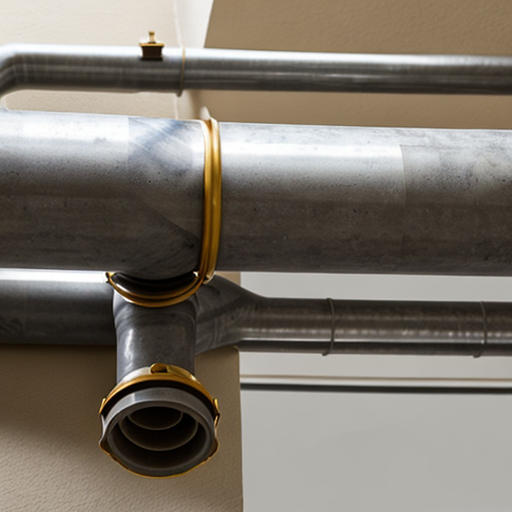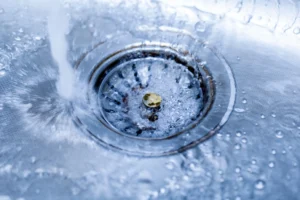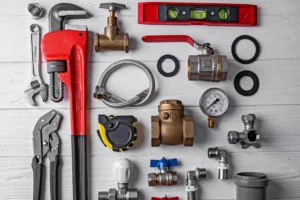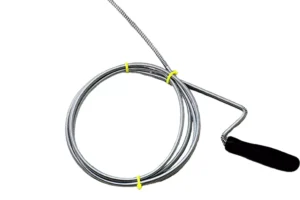Plumbing systems play a vital role in the distribution of water, gas, and waste removal in homes across Colorado. When it comes to setting up plumbing infrastructure, one of the crucial considerations is choosing the right pipes that ensure efficient and reliable conveyance of fluids. Various types of pipes are commonly used in Colorado homes, each designed for specific purposes based on their material, durability, and compatibility with different applications. In this article, we will explore some common types of pipes used in Colorado plumbing and their specific purposes.
Copper Pipes: In Colorado, copper pipes are a popular choice for plumbing due to their durability, corrosion resistance, and heat conductivity. They are commonly used for both hot and cold water supply lines, as well as for gas distribution. Copper pipes are available in two main types:
Rigid Copper Pipes: Rigid copper pipes are commonly used for water supply lines in Colorado homes. They come in different thicknesses, known as schedules, with thicker pipes used for main lines and thinner pipes for branch lines. These pipes are joined using soldering or compression fittings.
Flexible Copper Pipes: Flexible copper pipes, also known as copper tubing, find application in Colorado homes for shorter runs and where bending is required. They are more versatile and easier to install than rigid copper pipes. Flexible copper pipes are joined using flare fittings or compression fittings.

What types of pipes does your home have?
PEX Pipes: Cross-linked polyethylene (PEX) pipes have gained popularity in Colorado plumbing systems due to their flexibility, ease of installation, and resistance to freezing and corrosion. PEX pipes are commonly used for both hot and cold water supply lines in Colorado homes. They offer excellent durability and have the advantage of being able to expand and contract, making them resistant to bursting in freezing temperatures. PEX pipes are typically joined using crimp or clamp fittings.
PVC Pipes: In Colorado, polyvinyl chloride (PVC) pipes are widely used in plumbing for drainage, waste, and vent (DWV) systems. They are lightweight, affordable, and resistant to chemicals, corrosion, and abrasion. PVC pipes are commonly used for carrying wastewater and removing gases from plumbing fixtures in Colorado homes. They are available in various sizes and are joined using solvent cement or threaded fittings.
CPVC Pipes: Chlorinated polyvinyl chloride (CPVC) pipes, similar to PVC pipes, are specifically designed for hot water distribution in Colorado homes. They have a higher temperature and pressure tolerance than regular PVC pipes, making them suitable for both hot and cold water supply lines. CPVC pipes are joined using solvent cement or threaded fittings.
Galvanized Steel Pipes: Although less popular in recent times, galvanized steel pipes were commonly used in older plumbing systems in Colorado homes. They were coated with a layer of zinc to protect against rust. However, the zinc coating can deteriorate over time, leading to pipe corrosion and reduced water flow. Galvanized steel pipes were primarily used for water supply lines in Colorado homes and were joined using threaded fittings.
Cast Iron Pipes: Cast iron pipes were widely used in older plumbing systems in Colorado homes due to their strength and durability. They are primarily used for sewage and drainage systems. Cast iron pipes are known for their soundproofing qualities and resistance to fire. However, they are heavy and require skilled labor for installation. Cast iron pipes are joined using hubbed fittings with gaskets for sealing.
ABS Pipes: Acrylonitrile butadiene styrene (ABS) pipes are commonly used in residential plumbing in Colorado for drain, waste, and vent systems. They are lightweight, durable, and resistant to chemicals. ABS pipes are joined using solvent cement or threaded fittings. They are often used in conjunction with PVC pipes in Colorado plumbing systems.
HDPE Pipes: High-density polyethylene (HDPE) pipes are highly favored in Colorado for their excellent strength, durability, and resistance to chemicals and corrosion. They are commonly used for underground water supply lines, irrigation systems, and sewerage in Colorado homes. HDPE pipes are lightweight, flexible, and boast a long service life, making them suitable for various applications. In Colorado, these pipes are joined using heat fusion or mechanical fittings, ensuring leak-free connections and reliable performance.
Stainless Steel Pipes: Stainless steel pipes are another popular choice in Colorado plumbing systems. Known for their high durability, corrosion resistance, and tolerance to high temperatures, stainless steel pipes are commonly used for both water supply and gas distribution. They are particularly ideal for areas in Colorado with harsh environmental conditions or where hygiene is a top priority, such as in the food industry. Stainless steel pipes are joined using welding or threaded fittings, ensuring sturdy and secure connections.
Polypropylene (PP) Pipes: In Colorado plumbing systems, polypropylene (PP) pipes offer versatility due to their chemical resistance, high temperature tolerance, and durability. These pipes find common use for both hot and cold water supply lines, as well as for wastewater and drainage systems in Colorado homes. PP pipes are lightweight, easy to install, and boast a long service life. They are joined using heat fusion or mechanical fittings, ensuring robust connections that can withstand the demands of Colorado plumbing systems.
When selecting the appropriate type of pipe for a specific application in Colorado homes, it is important to consider factors such as water pressure, temperature, compatibility with different fluids, and adherence to local plumbing codes. Colorado residents are advised to consult with professional plumbers or refer to plumbing codes and standards to ensure the proper choice and installation of pipes in their plumbing systems. By choosing the right pipes and employing proper installation techniques, Colorado homeowners can ensure the efficiency, reliability, and longevity of their plumbing infrastructure.




